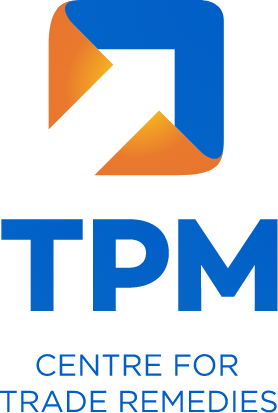Product Description – The product under consideration is Isobutylene-Isoprene Rubber (IIR) excluding food-grade IIR used as an ingredient for production of chewing gums.
HS Code – 4002 31 00
Uses – IIR is used for manufacturing of inner tubes for tyres and other high-pressure tubes, which form an integral part of manufacturing process of pneumatic tyres.
Countries Involved – China, Russia, Saudi Arabia, Singapore and the United States of America.
Applicant – Reliance Sibur Elastomers Private Limited.
Date of Initiation – 30th June, 2023
Period of Investigation – 1st April 2022 to 31st March 2023.
Injury Period – 2019-20, 2020-21, 2021-22 and the POI.
Margins and Proposed Duties –
| Country | Producers | Dumping margin | Injury margin | Duty (USD/MT) |
| China | Any | 10-20% | 25-35% | 319 |
| Russia | Public Joint Stock Company Niznekamskneftekhim | 30-40% | 50-60% | 519 |
| Russia | Others | 35-45% | 60-70% | 571 |
| Saudi Arabia | Al-Jubail Petrochemical Company | 40-50% | 15-25% | 588 |
| Saudi Arabia | Others | 50-60% | 20-30% | 647 |
| Singapore | ExxonMobil Asia Pacific Pte Ltd | 15-25% | 40-50% | 431 |
| Singapore | Any | 20-30% | 45-55% | 474 |
| USA | ExxonMobil Product Solution Company | 25-35% | 25-35% | 663 |
| USA | Others | 30-40% | 30-40% | 729 |
Key Findings –
- Since the present investigation is with regard to a new industry which has set up capacities to manufacture a new product, it is appropriate to considered whether the domestic industry has the capability to produce a product type rather than whether the same has been produced or sold by the domestic industry. Accordingly, specialty grade is not excluded from the scope of the product under consideration.
- Mere relationship between producers is insufficient to consider domestic producer ineligible to constitute domestic industry. There must be evidence that the related domestic producer acted differently due to the relationship or has participated in dumping or has taken such steps which have resulted in self-inflicted injury.
- Overcapacities or changes in prices of the raw material does not provide a justification to the exporters to engage in unfair trade practice of dumping.
- The capacity of the domestic industry is more than the demand in India. The volume of imports declined post commencement of domestic production and the volume parameters of the domestic industry have witnessed a positive growth. .
- Domestic industry has exported significant share of its inventories at losses.
- Imports have supressed the prices of the domestic industry.
- The domestic industry has incurred losses throughout the injury period. The profitability of the domestic industry has deteriorated with increasing financial losses, cash losses as well as negative return on capital employed. The EBIDTA of the domestic industry was negative throughout the injury period.
- While the domestic industry has been producing the subject goods for 43 months, it is yet to break even.
- IIR constitutes a small component in the tyre and is not a major cost component for the downstream industry. Thus, the impact of imposition of anti-dumping duty on the downstream industry is negligible.
- Imposition of anti-dumping duty should not lead to scarcity of product in India. The domestic industry has capacities more than the demand in India. Further, the subject goods can also be imported from sources other than the subject countries.

